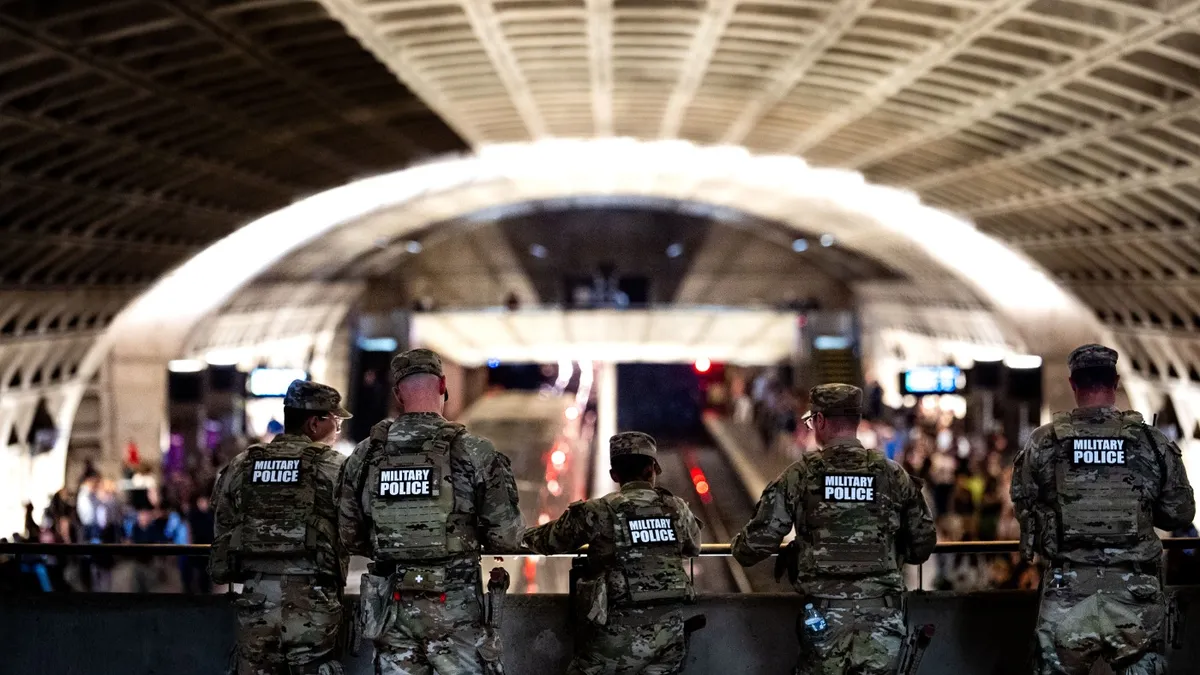
As cities like Chicago, Baltimore, and New Orleans prepare for the potential arrival of National Guard troops, tensions are rising amidst concerns over crime control initiatives under President Trump. This week, President Trump named these cities as potential sites for troop deployment aimed at curbing crime, despite evidence suggesting that crime rates have decreased in these areas.
The recent discussions around National Guard deployments come on the heels of actions taken in Los Angeles in June and Washington, D.C. in August. The implications of such military presence in urban communities are significant, particularly for local residents and community leaders.
In Chicago, known for having one of the largest Mexican communities in the U.S., organizers of the upcoming Mexican Independence celebration are taking proactive steps. Vicky Lugo, the lead organizer for the event in the city's lower west side, indicated that they plan to enhance their celebration with a robust team of volunteers and distribute "know your rights" cards to attendees. "We won't let anyone rain on our parade," she stated confidently.
Despite the looming threat of troop deployment, major events in Chicago, such as the Taste of Chicago, Printers Row Lit Festival, and Sundays on State, will proceed as planned. Organizers are, however, closely monitoring the situation for any developments, as reported by member station WBEZ.
In light of recent events, at least one celebration for Mexican Independence Day, which falls on September 16, has been postponed until November due to concerns about potential immigration raids and National Guard presence. Lugo emphasized the importance of community support, stating, "Honestly, it's the support of the community that we have gotten that has kept us going."
Mayor Brandon Johnson of Chicago has encouraged residents to unite and celebrate their culture despite the uncertainties. "I'm not intimidated, and no one should be," he advised during a recent statement. Illinois Governor JB Pritzker also voiced his concerns, anticipating the deployment of unidentified agents in unmarked vehicles within Latino neighborhoods and stressing the importance of legal and ethical operations within the state.
In Baltimore, Governor Wes Moore and Mayor Brandon Scott are in discussions regarding potential legal actions against the Trump administration should troops be deployed in their city. At a Friday night press conference, Moore expressed a cautious welcome for federal support, advocating for effective measures rather than funding cuts that undermine violence prevention programs.
To bolster local law enforcement efforts, Moore and Scott announced the provision of additional state resources from the Maryland State Police and Maryland Transportation Authority Police to address crime in the city.
Contrary to the Democratic governors in Illinois and Maryland, Louisiana's Republican Governor Jeff Landry has expressed support for the potential troop deployment in New Orleans. Earlier this week, he took to social media, stating, "We will take President @realDonaldTrump's help from New Orleans to Shreveport!" Landry previously supported the deployment of National Guard troops to Washington, D.C. in response to Trump's crime control initiatives.
The office of New Orleans Mayor LaToya Cantrell, along with the New Orleans Police Department, has refrained from taking a definitive stance on troop deployment, instead highlighting their ongoing efforts that have shown progress in crime reduction. "The City of New Orleans and NOPD remain committed to sustaining this momentum," their joint statement read.
Amid these developments, Shreveport Mayor Tom Arceneaux has acknowledged the governor's public safety concerns but emphasized the importance of collaborative discussions among local, state, and federal officials. He advocates for identifying long-term solutions to crime rather than relying solely on military intervention.
As preparations continue in these cities, the debate over the effectiveness and implications of deploying National Guard troops remains a critical issue for local communities and leadership.